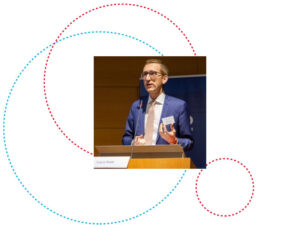The final conference of the ‘Working, Yet Poor (WorkYP) project’, coordinated by the University of Luxembourg, took place in Brussels on 26 January 2023. The event, where the results of three years of intense research were presented, gathered together more than 200 participants, including scholars, members of NGOs, social partners and policy makers.
During the first plenary session of the conference, Professor Luca Ratti coordinator of the WorkYP project presented the main problems and determinants of in-work poverty in Europe. Prof. Ratti’s introduction was followed by a speech from Nicolas Schmit, European Commissioner for Jobs and Social Rights. Mr. Schmit highlighted that in-work poverty is a very serious problem for the EU which demands an answer. Work has to pay, and the present Von der Leyen Commission is engaged in guaranteeing this principle with the adoption of some initiatives in application of the European Pillar of Social Rights.
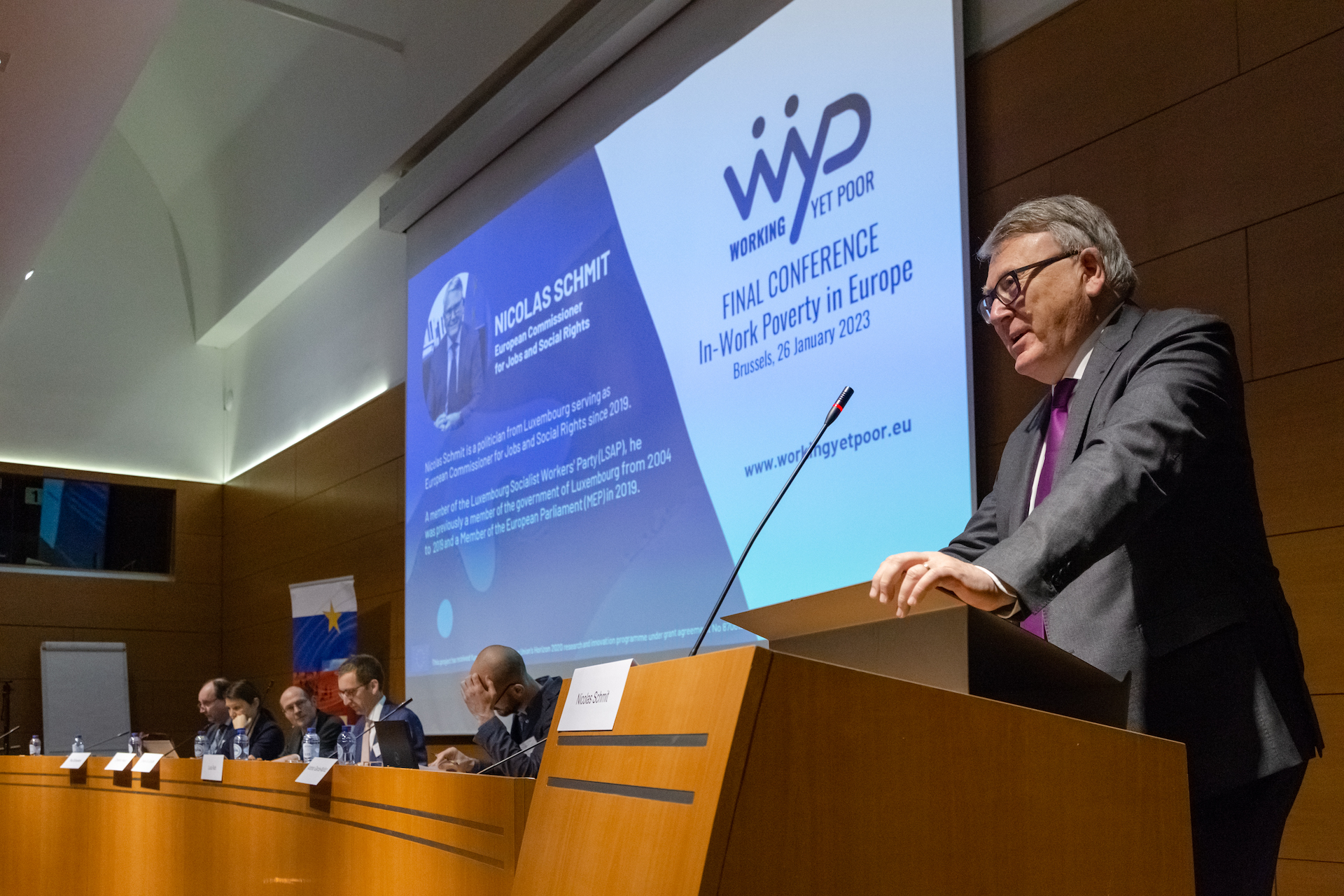
Nicolas Schmit, European Commissioner for Jobs and Social Rights, addresses the audience
Initiatives such as the 2022 Directive on Adequate minimum wages, the Council Recommendations on access to social protection and adequate minimum income or the 2021 proposal for a Directive improving working conditions in platform work are steps in the right direction. However, as the UN Rapporteur on extreme poverty and human rights Professor Olivier De Schutter underlined, much is still to be done in order to improve the situation of the most vulnerable workers.
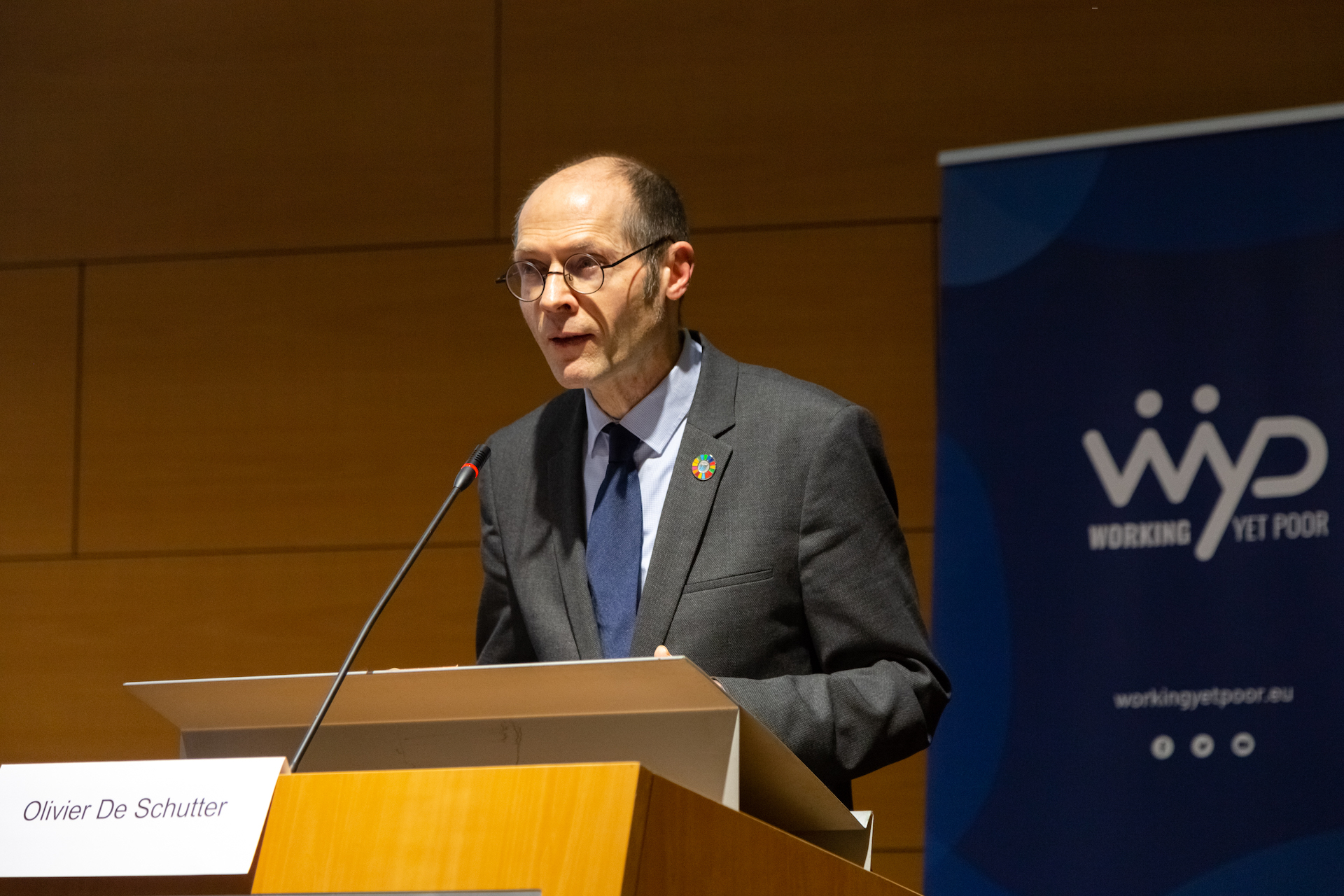
Prof. Olivier De Schutter (UCLouvain), UN Rapporteur on extreme poverty and human rights, highlights the importance of the research done by the project and its timely contribution.
In-work poverty is a complex reality, resulting from the fact that it includes individual and household dimensions. There are many drivers influencing in-work poverty, from individual characteristics to labour market policies, welfare state design or socio-demographic aspects. Furthermore, as shown in the comparative report done within the project, differences are important among EU member states, and policy solutions must consider these differences in national and regional contexts. Social Security is one of the dimensions where the fight against in-work poverty can be more effective. The research done by the project shows the importance to adapt social security schemes to include the most vulnerable workers, who are also those at higher risk of experiencing in-work poverty.
The second part of the Conference consisted of three parallel sessions addressing the role of wages and social partners, the situation of self-employed and platform workers and the challenges of atypical work and the gender dimension. All these are important questions in connection to in-work poverty. In each of the parallel sessions there were lively debates that allowed different stakeholders to make their voice heard. The parallel sessions included also the participation of people experiencing in-work poverty, with the aim to ensure that these persons have voice and visibility and their views are taking into account when thinking about possible solutions.
In the second plenary session, policy proposals were presented. These policy proposals aim at fighting in-work poverty for the most vulnerable groups of workers and are informed by the insights gained from the research done in the project. They represent some concrete proposals that must be understood as feasible and concrete possibilities to act among many other possible actions to tackle such a complex and multidimensional problem as in-work poverty is. The central idea is that a holistic and multidimensional approach is needed in different areas of regulation to effectively tackling in-work poverty.
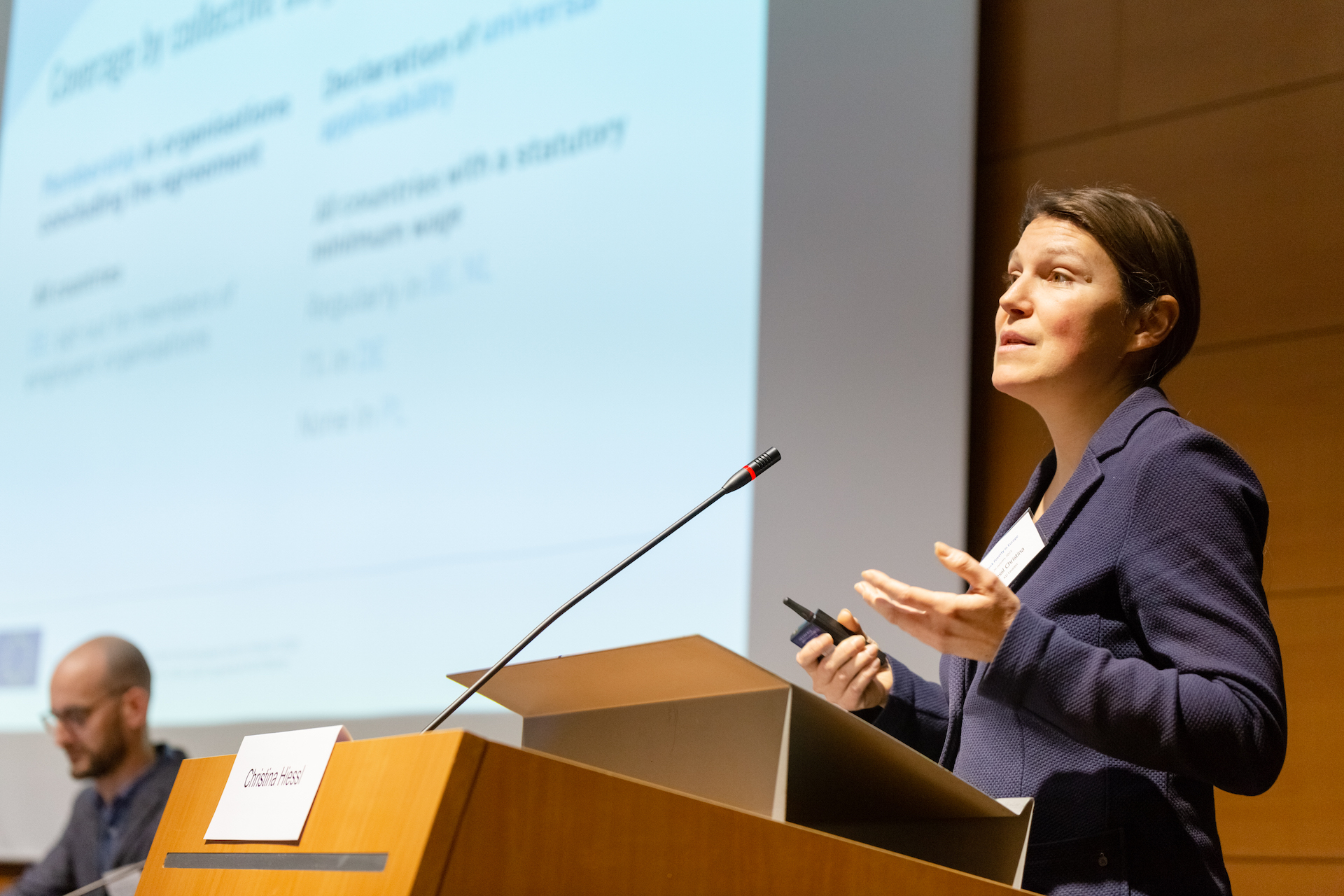
Prof. Christina Hiessl (KU Leuven) presents A comparative view of in-work poverty in seven EU Member State
Towards a more inclusive and systematic framework of labour and social rights for all Europeans
The conceptual framework that underpins these proposals is the idea of European social citizenship. This idea builds on existing values and policy objectives at EU level to further develop a more inclusive and systematic framework of labour and social rights at EU level founded on the ideas of equality and inclusion that are immanent to the concept of citizenship. The proposals presented envisage actions in different areas: improving the policy status and awareness of in-work poverty, with proposals such as enhancing the Revised Social Scoreboard to better highlight in-work poverty or mainstreaming in-work poverty in the European Pillar of Social rights; improving the assessment of in-work poverty, with proposals such as refining EU social indicators and data sources to provide a more in-depth assessment of in-work poverty; improving and ensuring access of low-skilled workers and non-standard workers to learning and training; improving vulnerable workers’ protection, with measures such as ensuring better access to social security and benefits, modernising the concept of employee to become more inclusive or limiting extreme flexibility in the labour market; including in-work poverty as a cross-cutting issue in a wider consensual debate on social investment.
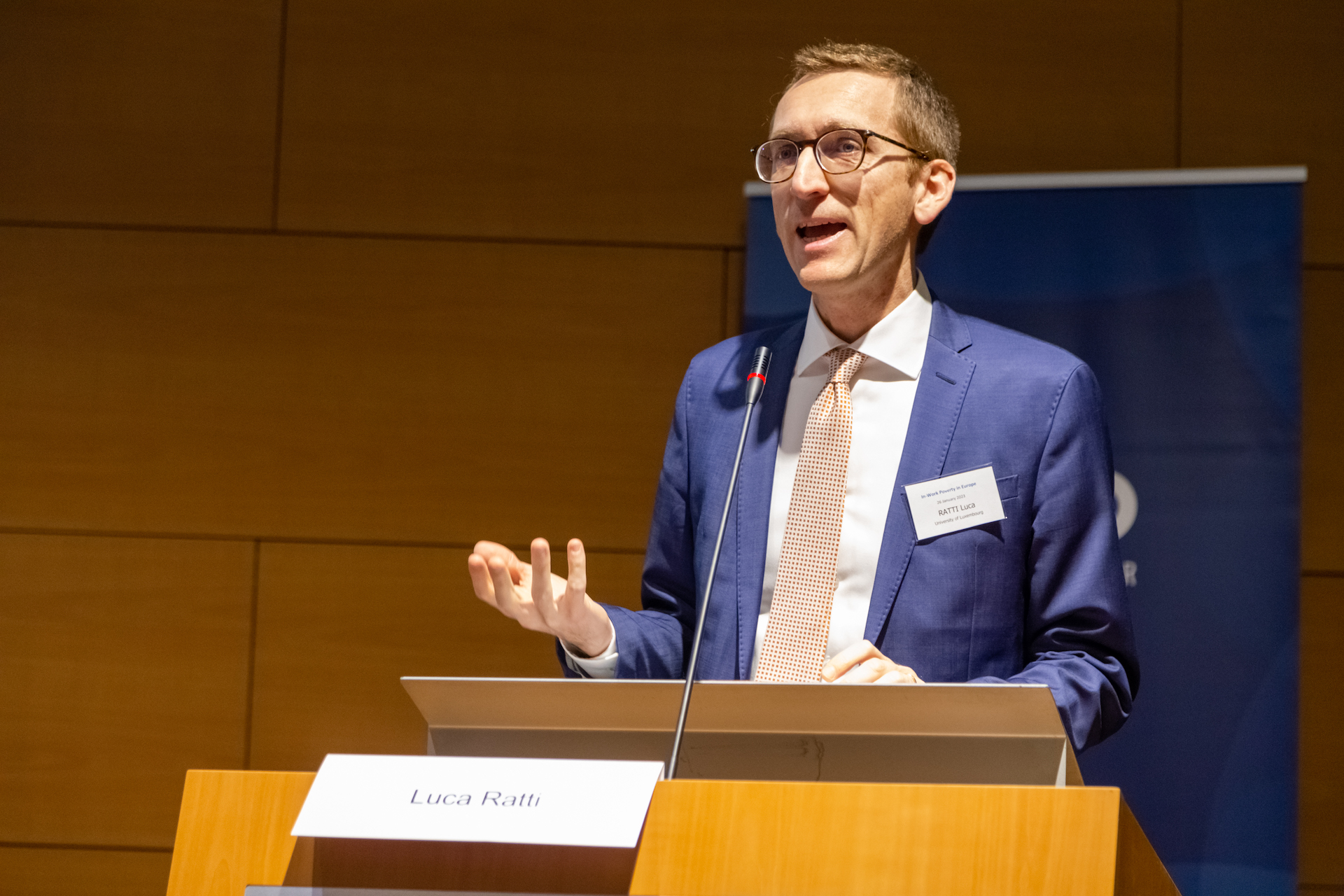
Prof. Luca Ratti (University of Luxembourg) presents the project’s policy proposals
The conference ended with a round table on in-work poverty in Europe where social partners and members of the European Parliament, the European Commission and the European Economic and Social Committee discussed some of the proposals and findings of the project. Despite divergences and differences in their approach, they all agreed in the need to fight in-work poverty, that was defined as a pressing social and political issue in the EU that features high in all agendas.
For more information about the project, visit https://workingyetpoor.eu/
